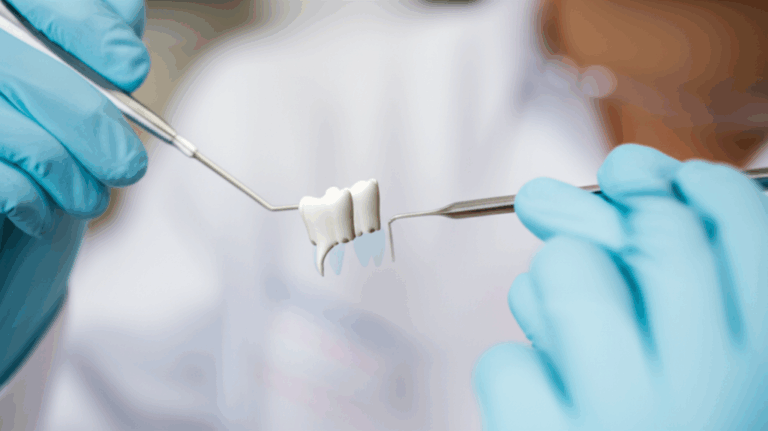
Are Indian Dentists Good? An Unbiased Look at Quality, Training & International Standards
It’s a question lots of people have—whether you live in India, are thinking about traveling for dental work, or meet an Indian-trained dentist somewhere else: Are Indian dentists good? If you’re asking about how well Indian dentists are trained, how good their work is, or if their degrees are accepted in other countries, you’re not alone. Dental care is important and can feel a bit scary, so it’s normal to want to know if your dentist is up to the mark.
Let’s get clear facts. No rumors, no myths—just simple answers. By the end, you’ll know what to look for in a dentist, how to judge if they’re right for you, and how to make the best choice for your teeth anywhere.
In This Article
- The Common Question: Are Indian Dentists Good?
- The Heart of Dental Training in India
- Hands-on Experience: Clinical Skills and Specializations
- International Reputation and Global Practice
- Beyond the Degree: What Shapes Dental Care Quality?
- How to Choose the Right Indian Dentist for You
- Wrapping Up: Your Health, Your Smile, Your Choice
The Common Question: Are Indian Dentists Good?
It’s normal to worry about picking a healthcare worker, especially someone you’re trusting with your smile. Maybe you’ve seen great reviews online for Indian dentists, or maybe you’ve read some bad ones. With people traveling for dental work and Indian dentists working all over the world, this topic comes up a lot.
You might be wondering:
- Is an Indian dental degree as good as one from the US, UK, or Australia?
- Are Indian-trained dentists ready for real-world work?
- Is dental care in India safe and good?
- Can I trust an Indian dentist if English isn’t their first language?
- What about cleanliness, new technology, and patient rights?
All these are good questions, and your health is important. Let’s look at what really happens.
The Heart of Dental Training in India
To know what kind of dentist you might meet, first look at how they’re taught.
Tough Schooling and Standards
In India, people who want to be dentists go for a Bachelor of Dental Surgery (BDS) degree. This is a tough five-year course—first studying science subjects like anatomy, and then doing dental work.
Unlike in some countries, Indian students start learning with real patients pretty soon. After three years of serious study, students spend well over a year in clinics, treating real people under the watch of their teachers. By the end, most students have spent 3,000 to 5,000 hours working and learning with real patients.
What’s in the BDS course in India?
- Strong science basics that match other countries.
- Lots of hands-on work with patients—like fillings, root canals, and even difficult teeth pulling.
- A one-year must-do internship where students really practice what they’ve learned.
- Many tests and practical exams to keep up the standards.
Checks and Rules (Dental Council of India)
It’s not just up to the colleges themselves. The Dental Council of India (DCI) is the main body that sets the rules, like the American Dental Association or the General Dental Council in the UK. The DCI says what should be taught, how clinics should work, and checks if colleges are doing things right. If a school isn’t doing well, the DCI can even close it down.
Did you know? India now has over 300 approved dental colleges, including top places like the Maulana Azad Institute of Dental Sciences (MAIDS) and Manipal College of Dental Sciences.
Hands-on Experience: Clinical Skills and Specializations
A dentist shouldn’t just know the theory—they need to be good with their hands and treat people well.
Treating Lots of People with Different Problems
What makes India different? Numbers and types of patients. There are over 1.4 billion people in India, and dental colleges see every kind of problem—from normal tooth pain to rare diseases or jaw injuries.
In big hospitals and colleges in big cities like Delhi, hundreds of patients come through every day. This means students get to see and treat all sorts of cases, building up their confidence and skills.
In short: Indian dental students treat a huge number of people before they even finish college.
Specializing with More Study (MDS)
Some dentists stop after the BDS degree, but many keep going to get a Master of Dental Surgery (MDS). These extra three years cover topics like straightening teeth, root canal treatments, gum problems, artificial teeth, kids’ dentistry, and more.
Getting into an MDS program is hard. Only about 15-20% of people who apply get in. So, those who do are often among the best students.
A Real Example
Take Dr. Singh, who finished MDS in Oral Surgery in Mumbai, then moved to Sydney, Australia. He says: “My Indian training let me handle all sorts of tough cases, from pulling hard teeth to fixing broken jaws. At my new job in Australia, I felt ready from day one.”
International Reputation and Global Practice
Don’t just take India’s word for it—look at what the world says.
Passing Exams Abroad
Dentists who want to work in countries like the USA, UK, Australia, or Canada have to clear some tough exams, like:
- NBDE (USA)
- ORE (UK)
- ADC (Australia)
- NDEB (Canada)
It’s not easy, but many Indian-trained dentists pass these tests, showing that their basics and real skills are strong. Reports say about 30-40% of Indian test-takers pass, which is good compared to many others.
Working Around the World
If you’ve been to a dentist in London, Toronto, Sydney, or even in the Middle East, chances are they studied in India. Indian dentists are known for being hard-working and well-trained.
Thousands of Indian-trained dentists work in the UK’s National Health Service (NHS), treating millions of people. Many dental councils, like the Australian Dental Council or Canada’s dental board, accept Indian degrees too—if you clear their own tests.
Patients’ Stories
Listen to Maria, who moved from Spain to Canada and visited Dr. K, an Indian dentist:
“I was nervous because it was a new country and a new dentist. But Dr. K explained everything and treated my son kindly. We’re really happy.”
Beyond the Degree: What Shapes Dental Care Quality?
A diploma is nice, but it isn’t everything. Good dentists keep learning, use good tools, and treat people with respect.
Learning All the Time
Dentistry keeps changing, so good dentists always keep up with new things. They join workshops, go to online short courses, and attend meetings. The Dental Council of India asks for dentists to keep learning, just like in the US.
Why is this good for you? Because your dentist knows about new ways to do things, like pain-free anesthesia, digital scans for crowns, or braces you can’t see.
What Kind of Clinic Do They Have?
Dental clinics in India come in all types. In small towns, clinics might be pretty basic. In bigger cities, some clinics have the latest machines and modern tools:
- Digital X-rays (faster and safer)
- Same-day crown machines (CAD/CAM)
- Microscopes for precise root canals
- 3D scans for implants
- Laser tools for whitening or gum care
City clinics use gloves, single-use tools whenever possible, and follow strict cleaning rules. Some even work with top labs—like a dental ceramics lab—so patients get the best results.
Cleanliness and Patient Safety
Let’s be honest: Not all clinics are the same, especially in a big country like India. Trusted clinics, mainly in big cities, try to follow rules for keeping things very clean and safe. Surveys say about 95% of top clinics do this right. Still, be smart—look around, ask about how they clean tools, and don’t be shy to bring up anything you notice.
Reviews and Honest Dealing
Most dentists want reviews and show patient stories. Big groups like the Indian Dental Association (IDA) watch out for unethical behavior and fix problems if they come up.
More and more, Indian dentists show their prices up front, respect patient rights, and talk clearly about what’s happening.
How to Choose the Right Indian Dentist for You
You don’t want just anyone—you want the right dentist for your needs. Here’s what you can do.
What to Ask and Check
1. What degrees do they have?
- Look for BDS (Bachelor of Dental Surgery). If your case is tricky, check for an MDS (Master of Dental Surgery) in the area you need, like root canals or replacing teeth.
- Make sure their college is approved by the Dental Council of India (DCI).
2. Are they registered?
- Every Indian dentist should be registered with the DCI—think of it as their license.
3. How much have they done your procedure?
- Some are experts at root canals, wisdom teeth, new teeth, or full mouth fixes. Ask if they’ve done your kind of treatment often.
4. What do other patients say?
- Check neutral reviews, patient stories, and ask friends if they know a good one—especially if you’re coming from far away.
5. Is the clinic modern and clean?
- Look for up-to-date equipment, digital records, a clean office, and good cleaning practices.
- Some clinics have their own digital dental lab or use great outside labs, which helps for complicated treatments.
6. How do they help with emergencies or after-care?
- Good clinics tell you clearly about follow-ups and are there if you have trouble later.
Why Meet Them in Person Matters
Even the best dentist won’t always be the right fit for you. Go for a chat, ask your questions, and notice if they:
- Listen to your worries,
- Explain things so you get it,
- Are honest about what could go wrong,
- Don’t push for pricey treatments if you don’t need them.
If you feel comfortable and respected, you’ve found a good one.
Wrapping Up: Your Health, Your Smile, Your Choice
Here’s what really matters when picking your dentist.
Takeaways: What You Should Remember
- Indian dentists usually get good training in both books and hands-on work.
- Many pass hard tests overseas and work all over the world—so their degrees are well-accepted.
- Big city clinics in India use new tech, strong cleaning rules, and put patients first—but always check for yourself.
- Top dentists keep learning new things all the time.
- How your dentist acts with you is just as important as any degree.
What You Can Do Next
- Don’t be afraid to ask about your dentist’s school, license, or work experience.
- Check reviews and stories, especially for big jobs like dental implants or making new teeth.
- Look at how the clinic is set up and if it’s clean and modern.
- Trust your own feelings. A good dentist will make you feel in control.
Remember: Good dentistry isn’t just about where someone’s from. It’s about their skill, attitude, and your comfort. Whether you go to a dentist in Mumbai, London, or Toronto, make sure they care about you and your teeth.
Frequently Asked Questions About Indian Dentists
Q: Are Indian dental degrees accepted in other countries?
A: Yes. Most Indian dental degrees—if from DCI-approved colleges—are accepted for licensing in other countries, but you may need to pass a local test.
Q: Is dental care in India safe?
A: Yes, if you pick good clinics, especially in big cities, care and cleaning are similar to other top countries. Do your homework, as some clinics are better than others.
Q: How does the cost of dental care in India compare?
A: Dental care in India usually costs less than in Western countries, but quality and skills can be just as good. That’s why many people travel to India for dental work.
Q: Do Indian dentists use the latest equipment?
A: Many city clinics use very modern tools—like digital X-rays and 3D scanners. Always ask, because it can vary.
Q: Will the care be like what I’m used to?
A: If you pick a good clinic and a well-trained dentist, yes! Good communication is important no matter where you get treated.
Building Your Confidence, One Smile at a Time
Your teeth are important, so don’t leave it to luck. Now that you know about Indian dental training, their patient experience, and how standards are set, you’re set to make smart choices and have open talks with your dentist—wherever they studied. If you want to know about special treatments, like finding a good veneer lab, or more about other dental options, don’t hesitate to ask. Knowledge is your best tool for staying healthy.
Here’s to good habits, learning for life, and a smile you’re happy to show off—anywhere you go.








